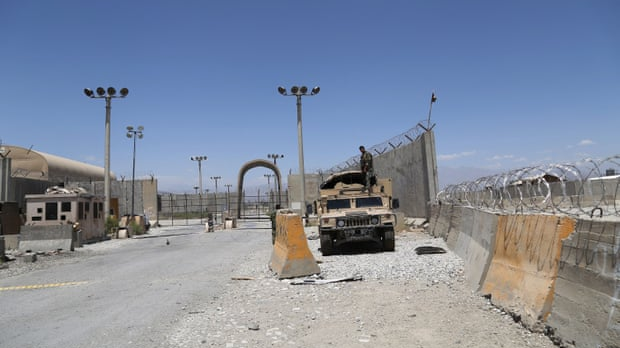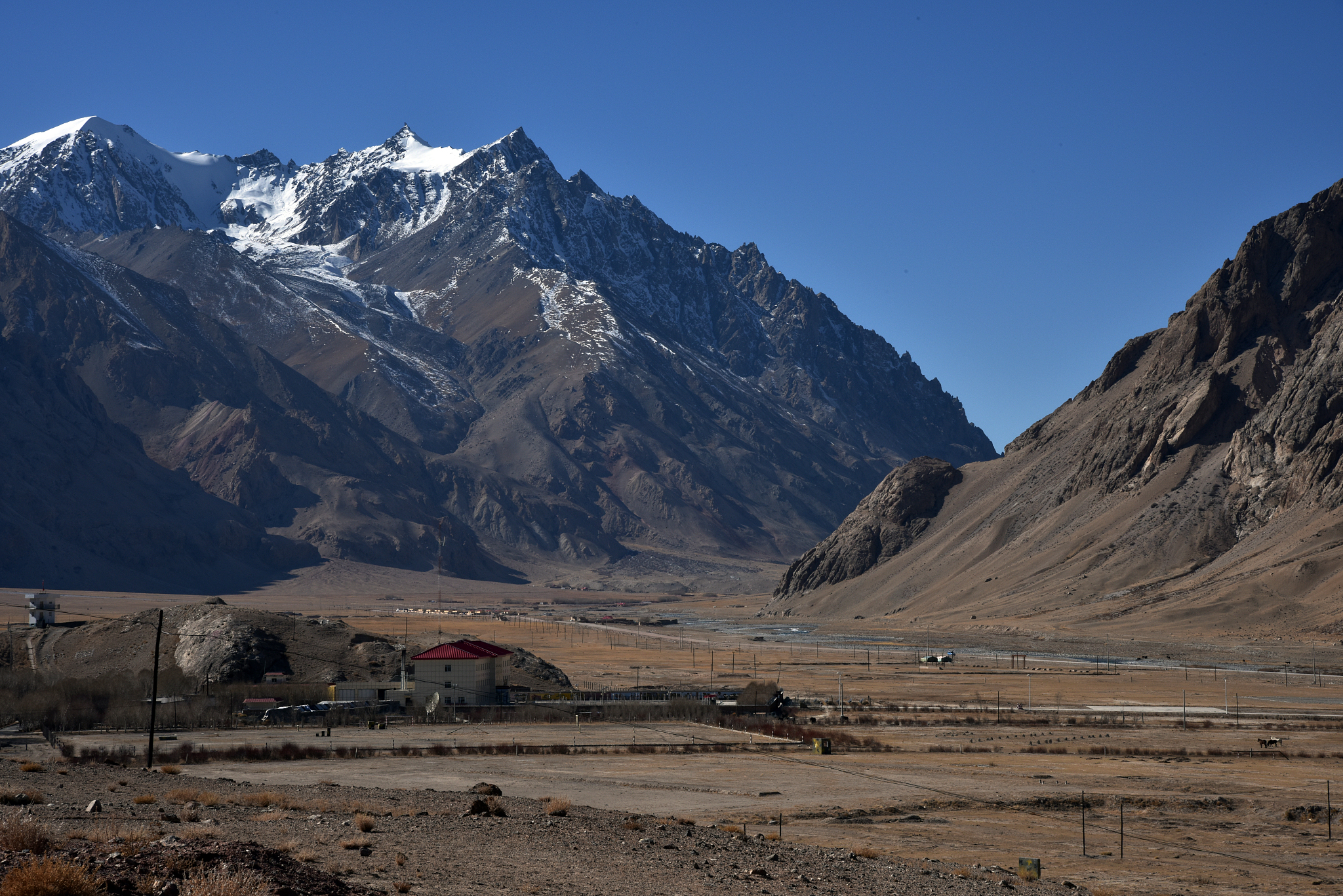
A deserted Bagram airfield after the departure of all U.S. and NATO forces from Parwan province, eastern Afghanistan. /Xinhua
A deserted Bagram airfield after the departure of all U.S. and NATO forces from Parwan province, eastern Afghanistan. /Xinhua
Editor's note: Andrew Korybko is a Moscow-based American political analyst. The article reflects the author's opinions, and not necessarily the views of CGTN.
The Daily Beast cited unnamed Afghan sources in their report on Monday claiming that China is ready to extend the Belt and Road Initiative (BRI) into post-withdrawal Afghanistan. The outlet, as is typical of Western ones, also included some false fearmongering narratives into their text such as the unsubstantiated allegation that China only wants the war-torn country's natural resources. On balance, however, the article was largely apolitical and focused mostly on Afghanistan's future connectivity prospects. It deserves a closer look though since this general idea is even more promising that The Daily Beast portrayed it as.
The outcome of last month's virtual trilateral Foreign Ministers meeting between the top Chinese, Afghan, and Pakistani diplomats saw Kabul expressing renewed interest in BRI, particularly the use of Pakistan's Gwadar port for accessing the rest of the global economy. That rapidly growing town near the Iranian border is the terminal point of the China-Pakistan Economic Corridor (CPEC), BRI's flagship project. CPEC has attracted upwards of $60 billion worth of investment commitments from China. It's so important because the project provides China with reliable access to the Indian Ocean and thenceforth West Asia & Africa.
The U.S. Navy's aggressive so-called "Freedom of Navigation Operations" (FONOPs) in the South China Sea and the much talked-about scenario among American war hawks of blocking the Strait of Malacca in the event of a conflict with China essentially lose their grand strategic utility as a result of CPEC.
It's truly the most important BRI project anywhere in the world, but it's not just about functioning as a shortcut between China and its many economic partners elsewhere in the western parts of Afro-Eurasia. CPEC will revolutionize the fundamentals of the Pakistani economy and enable the South Asian state to emerge as a significant force in the coming decades.

A general view of part of the Wakhan Corridor at China's Xinjiang Uygur Autonomous Region. /VCG
A general view of part of the Wakhan Corridor at China's Xinjiang Uygur Autonomous Region. /VCG
Furthermore, CPEC embodies BRI's principle of connectivity, hence the desire to extend it into post-withdrawal Afghanistan. That country and Pakistan share a common history over the centuries and many Afghans currently live in the neighboring state. Afghanistan and Pakistan form a natural economic community so it makes sense to intensify their integration once the situation in the former finally settles down.
Not only that, but this northern branch of CPEC (which can be casually described as N-CPEC+) can even extend as far as the Central Asian Republics, Russia, and further afield to Europe. In other words, it can create an entirely new economic axis.
Progress on this front is already being made. Pakistan, Afghanistan, and Uzbekistan agreed in February to construct a trilateral railway that can casually be referred to as PAKAFUZ after the first letters of each participating country. Seeing as how China is leading economic processes in the Global South through its BRI investments, it's entirely possible that Beijing could help finance this project, especially considering its interest in incorporating Afghanistan more closely into the New Silk Roads. This would enable Afghanistan to achieve sustainable economic development after its war ends by profiting from its central transit status.
What's most exciting of all is that N-CPEC+ might even encourage India and Pakistan to pragmatically set aside their differences in the interests of regional development. Pakistani Chief of Army Staff (COAS) General Qamar Javed Bajwa actually articulated this vision in March during the inaugural Islamabad Security Dialogue while jointly unveiling his country's new grand strategy of geo-economics alongside Prime Minister Imran Khan and Foreign Minister Shah Mahmood Qureshi.
If the existing ceasefire between the two rivals continues to hold and they reach a breakthrough on Kashmir, India could trade along N-CPEC+ and thus connect with its Russian ally.
For all of these aforementioned reasons, BRI wouldn't just be the best thing to happen to post-withdrawal Afghanistan, but for the entirety of Eurasia in the best-case scenario. The Daily Beast's reporting on this promising possibility didn't discuss all of the exciting geo-economic opportunities that could be unleashed by Afghanistan joining this global connectivity network.
An entirely new economic axis could be created stretching from Europe to India, which would immensely benefit all of the transit states between them. This would greatly accelerate the emerging Multipolar World Order and therefore be to the ultimate benefit of humanity.
(If you want to contribute and have specific expertise, please contact us at opinions@cgtn.com.)

